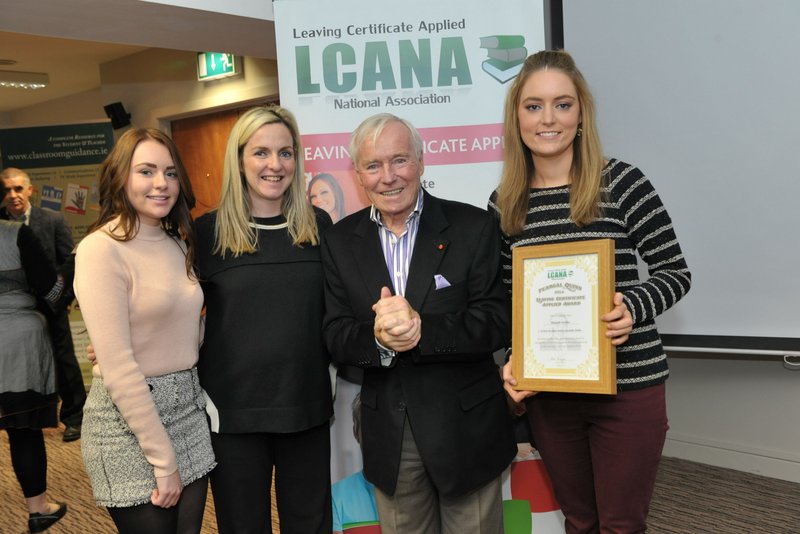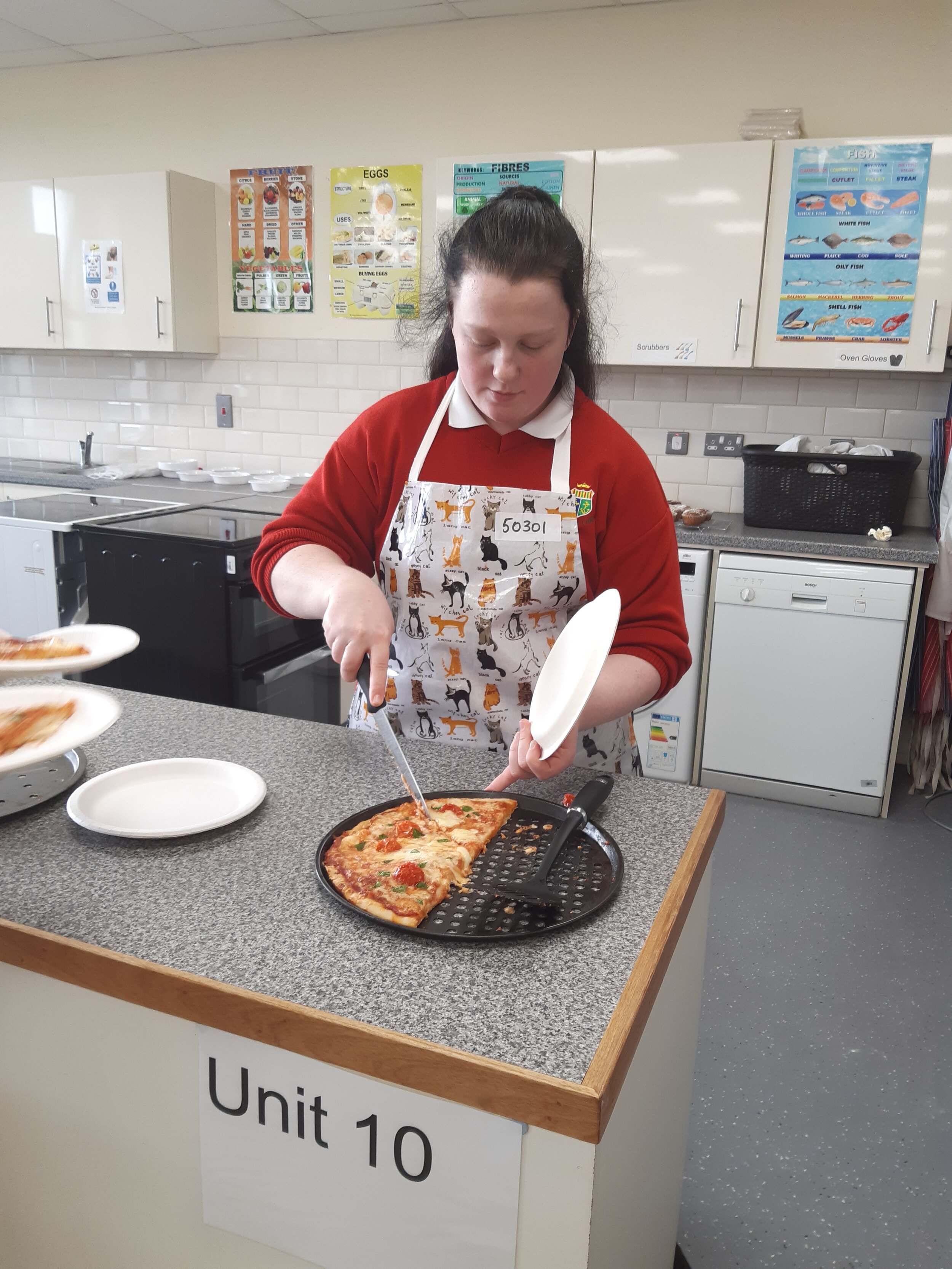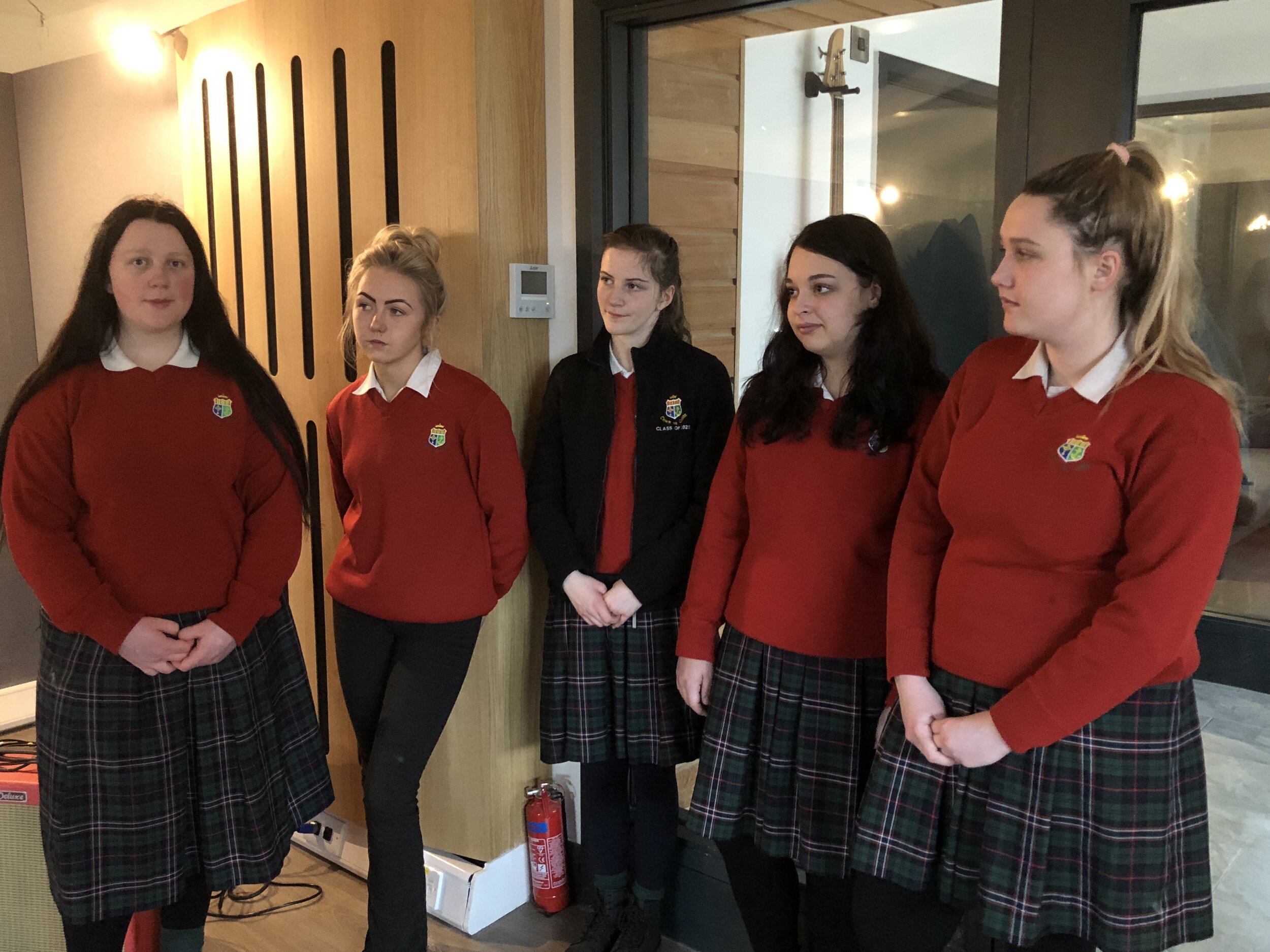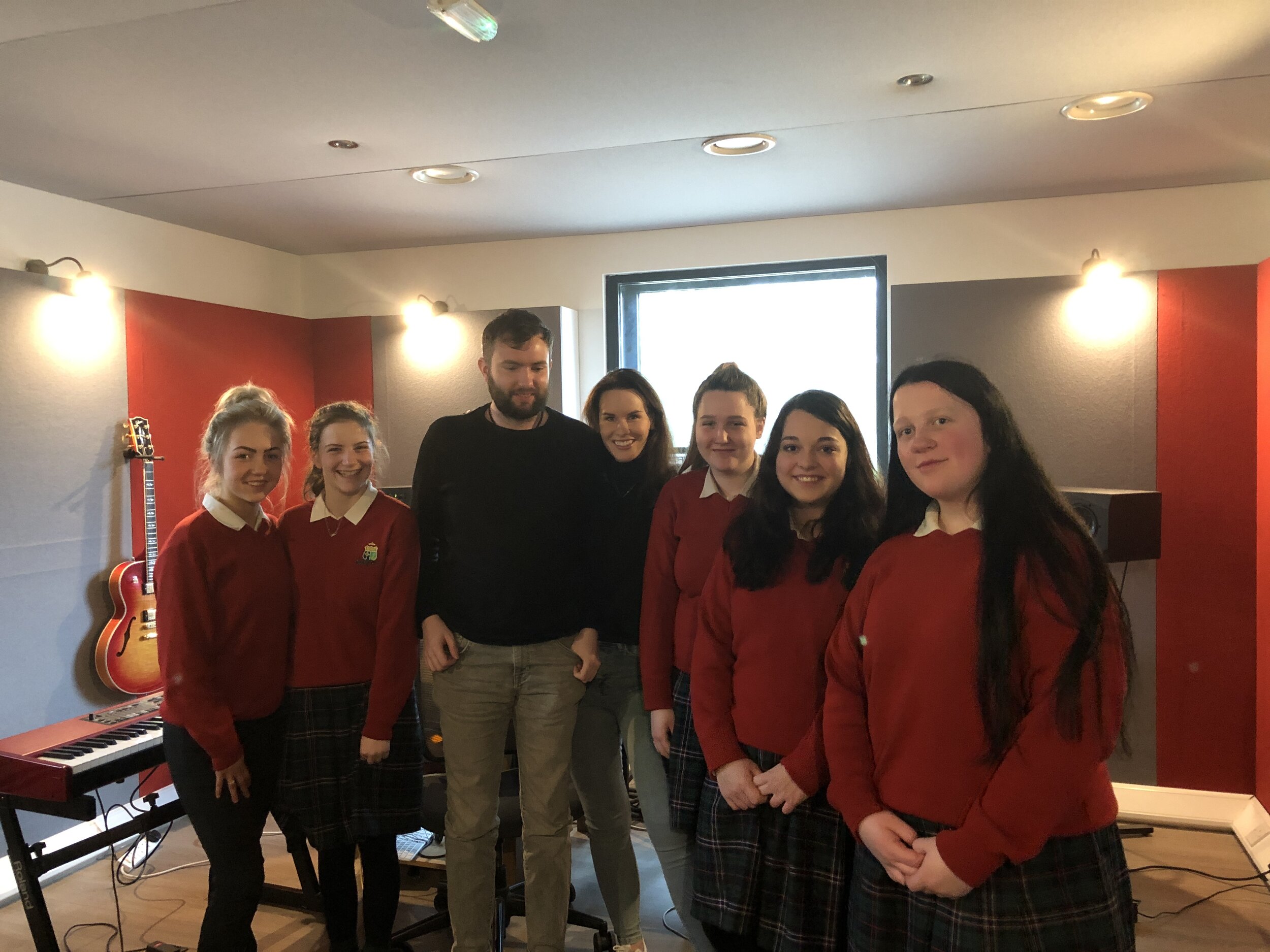
Curriculum
Junior Cycle
All students take the following subjects:
English*
Irish*
Maths*
CSPE*
Geography*
Religious Education
SPHE
Speech & Drama
History*
French*
German*
ICT
Physical Education
( *denotes an examination subject / Students chose between French and German in first year.)
+ 3 of the following subjects:
Art
Business Studies
Science
Technology
Food Studies
Music
(All chosen options are examination subjects / Although Science is listed here as an optional subject, all students pursue Science to Junior Cert level)
SPHE (Social, Personal and Health Education.) It is one of the school’s key Wellbeing subjects, delivered to all Junior Cycle students throughout 1st, 2nd and 3rd Year. Please use the link below to discover what the SPHE course covers.
SPHE (Social, Personal and Health Education.) It is one of the school’s key Wellbeing subjects, delivered to all Junior Cycle students throughout 1st, 2nd and 3rd Year. Please use the link below to discover what the SPHE course covers.
SPHE (Social, Personal and Health Education.) It is one of the school’s key Wellbeing subjects, delivered to all Junior Cycle students throughout 1st, 2nd and 3rd Year. Please use the link below to discover what the SPHE course covers.
Transition Year
All students take the following subjects:
Maths
History
Geography
Irish
English
Community Awareness
SPHE
Career Guidance
Physical Education
Typing Skills
Mini-Company or YSI
Religious Education
(From transition year on the Sciences are taken in modular form )
Also, the following modules are offered:
(The modules offered may vary on a yearly basis)
Rotating Module Subjects
(8 weeks each approximately)
Business/Economics/Accounting
Film/Sustainability/Textiles
Chemistry/Biology/Technology/Information Technology
Art Out There/Aquatics and Fitness/Home Economics
Politics & Society/ LIFT (leadership module)/ Maintenance
Physics/Computer Science/Wellbeing/Physical Education
Non- Rotating Modules
(Students select one from each of the following module bands)
Gaelbhratach/Science & Environmental Competitions/Journalism/Green Schools
Mini Company/Young Social Innovators/GAA Leadership/Art Out There
Dance/Choir/Speech and Drama ( Musical)
Also part of our TY program are:
Enterprise
The school has a long history in enterprise education in Transition year. Mini companies are formed every year and compete strongly in trade fairs and area finals. Many innovative products and services have been produced over the years. Brainstorming and market research will no doubt produce new ideas again in 2007-2008. This module ensures great personal development, IT and Business Skills. All enterprise students are interviewed by a skilled interviewer.
Young Social Innovators
"We can change the world for good"
Young Social Innovators was created in 2001 to develop social awareness and activism amongst young people (15-18 years) so that they may become effective champions for social justice no matter what they do later in life.
This programme was introduced to Transition Year in September 2007. Students working in teams, identify a social issue that they feel they could help to change. This issue could affect their school, community, Ireland in general or have an international aspect. They study the problem. Then through research and meetings with people concerned and relevant organisations they identify ways of improving or solving the issue. They come up with radical, innovative suggestions and actions for change that can make a real difference to peoples' lives.
Debating
Debating is an integral segment of the Transition Year programme of personal development. Students are encouraged to enter competitions organised by:-
Concern - Credit Union Organisation - Denny Munster Schools Debating
In 2007 the Transition Year students reached the quarter final of the Concern Debating competition. The students also won outright the Credit Union competition.
Transition year students organise a debating society for first and second years. In 2008 TY students reached the semi-final of the Credit Union competition.
Leaving Certificate
There are two choices in the leaving cycle: Leaving Certificate (Traditional) / Applied Leaving Certificate (LCA)
Leaving Certificate (Traditional)
Students study the following core subjects:
English*
Irish*
Maths*
French*
German*
ICT
Religious Education
Physical Education
Guideance
(* denotes an examination subject / Students chose between French, German and Italian)
+ 3 of the following subjects:
Geography
History
Technology
Art
Business Studies
Economics
Accounting
Chemistry
Agricultural Science
Home Economics
Biology
Music
Physics
Computer Science
Physical Education
RSE. Relationships and Sexuality Education is provided to all students in Senior Cycle. Please use the link below to find out more on the RSE programme.
Leaving Certificate Applied
The Leaving Certificate Applied is a distinct, self-contained two year Leaving Certificate Programme aimed at students who seek a meaningful senior cycle but who are not necessarily motivated by the type of learning which is characteristic of the traditional Leaving Certificate.
It offers learners specific opportunities to prepare for and progress to further education and training by developing enterprise, co-operation, self-confidence, responsibility, creativity and self-appraisal skills
Leaving Certificate Vocational Programme (LCVP)
LCVP is a two year programme that begins in 5th year. The requirements for the LCVP are as follows:
You must take a minimum of five Leaving Certificate subjects.
Two of the above must be selected from the designated Vocational Subject Groupings.
You must follow a recognised course in a modern European language.
You must study two Link Modules – Preparation for the World of Work and Enterprise Education.
Over the years the majority of LCVP students have used theirresult to gain entry to their preferred college course.
Special Education
Aims/Objectives:
That all our students achieve to their highest potential – where possible students are helped towards sitting their Junior Certificate in as many subjects as possible. Number of subjects depends on the individual students.
That students are taught life skills through a variety of subjects.
That students’ self esteem and social skills are developed to help them interact with their peers and relevant adults.
We provide for the following strands in Special Education and Learning Support Needs:
Learning support
Sacred Heart Secondary School has a clear policy of inclusiveness and welcome to all students of all levels of ability. Our Special Education and Resource department embraces this policy in a very special way. The needs of each students academic, emotional, pastoral and physical, are taken into consideration when organising timetables and staffing. The staff who work with our students who have special educational needs, are dedicated teachers who provide a warm and caring working environment and who work with their students to enable them to achieve their utmost academically, while ensuring their scholastic experience is an enjoyable one.
Resource and Special Education
An entrance assessment is undertaken early in the year of admission to assist the Special Needs Department in determining which students may have difficulties with Maths and/or English.
A newly revised allocation process for Special Education Teachers to mainstream post primary schools from the 2017/18 school year has been introduced.
The new Special Education Teaching allocation will provide a single unified allocation for special educational teaching needs to each school, based on that school’s educational profile.
This single allocation is being made to allow schools to provide special education teaching support for all students who require such support in their schools.
Schools will deploy resources based on each students’ individual learning needs.
Many children require additional teaching support in schools. In such circumstances, the classroom teacher will be supported by Special Education Teachers, who will have access to additional training in the area of special education, and who will work closely with the class teacher to provide additional teaching support for children with special educational needs.
The classroom teacher, in consultation with the Special Educational Needs Teacher as required, will consider ways in which the curriculum can be differentiated or adapted to suit the needs of individual students. This may also involve identifying the most appropriate teaching strategies and programmes to meet the students needs, and whether additional teaching supports are required.
Additional Teaching support may be provided in a variety of ways. The special educational needs teacher might work in the classroom with the class teacher or withdraw students in small groups and/or individually for a period of time (depending upon the nature of students needs) for intensive teaching of key skills. Additional Learning Support classes are timetabled at Irish and Language time.
International students
With the increase in the number of internationals into our school, Management of the Sacred Heart Secondary School has encouraged a number of it’s teachers to train in TEFL courses in order to teach English to the growing number of our foreign students. These students are withdrawn at Irish time and where viable at times when European languages are taught.














